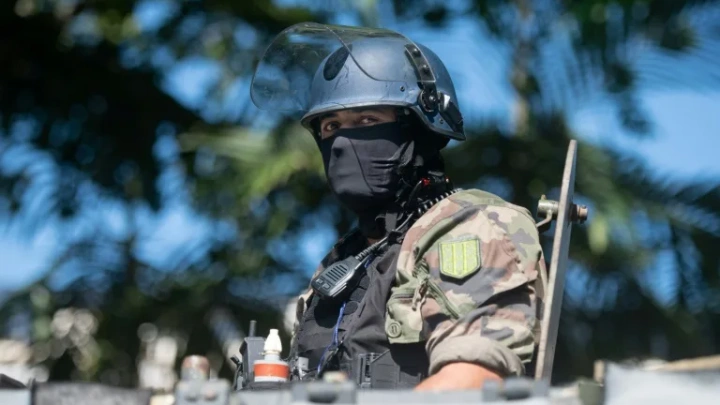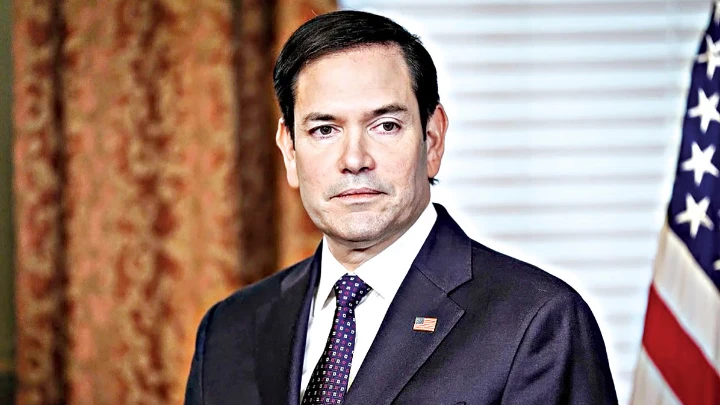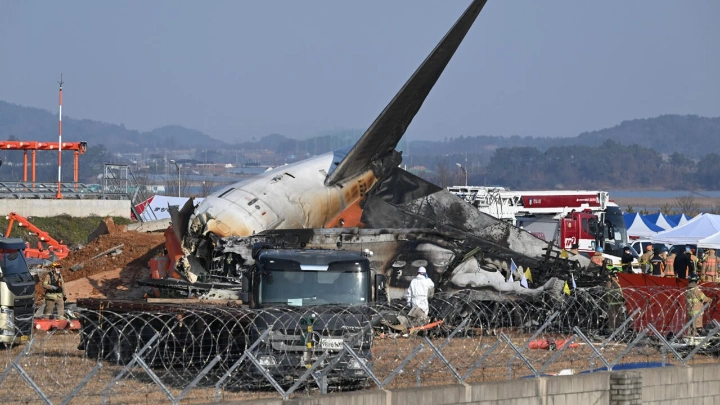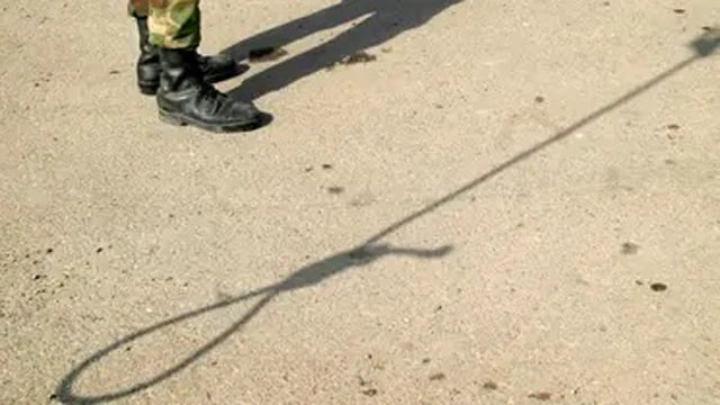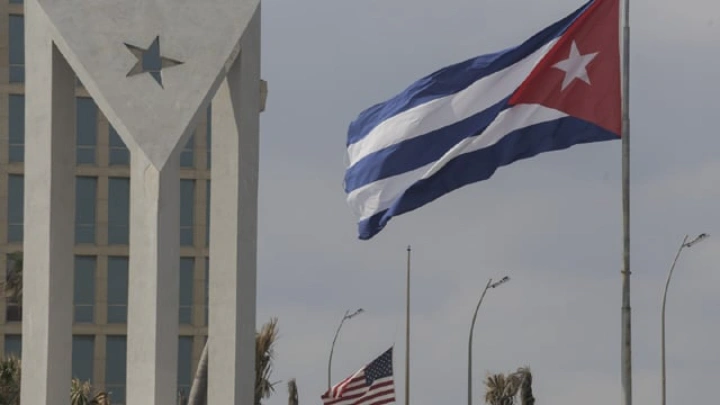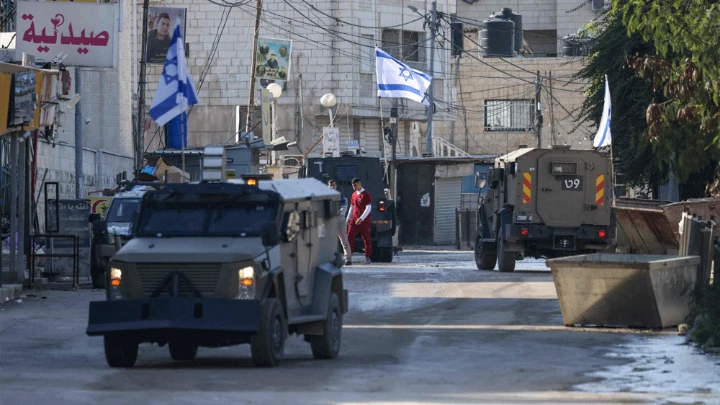France mounts 'major operation' to open route to New Caledonia's restive capital
AFP || Shining BD
French forces launched a "major operation" on Sunday to regain control of a key road linking New Caledonia's capital Noumea to the main international airport, after a sixth night of violent unrest.
Officials said more than 600 heavily armed gendarmes were deployed to secure Route Territoriale 1, the main north-south artery connecting the restive capital with the rest of the island and the outside world.
The Pacific archipelago has been convulsed by violent unrest since Monday. Local authorities say six people have been killed -- including two gendarmes -- and hundreds have been injured.
The violence has been fuelled by economic malaise, ethnic tensions and long-standing opposition to French rule. Around 230 people have been detained, authorities said.
A nighttime curfew, state of emergency, ban on TikTok and arrival of hundreds of troops from mainland France failed to prevent more unrest overnight Saturday to Sunday.
Unidentified groups set two fires and raided a petrol station, according to the office of New Caledonia's high commissioner.
But authorities insisted the situation is improving. "The night has been calmer," the commissioner's office said.
Local media reported a public library was among the buildings burned.
The mayor's office told AFP there was "no way of confirming for the moment" as the "neighbourhood remains inaccessible".
- Stranded tourists -
For almost a week, protesters have set vehicles, shops, industrial sites and public buildings alight, while pro-independence forces have controlled access to Tontouta International Airport.
A local business group estimated the damage, concentrated around Noumea, at more than 200 million euros ($200 million).
AFP reporters were able to reach the airport from Noumea on Sunday, but were stopped repeatedly by groups blocking access at several locations.
Flights to and from New Caledonia's main island have been cancelled since the unrest began, stranding an estimated 3,200 travellers and cutting off a key trade route.
French Interior Minister Gerald Darmanin said "a major operation of more than 600 gendarmes" was being launched "aimed at completely regaining control of the 60 kilometre main road" and allowing the airport to reopen.
The single-lane Territorial Route 1 weaves through the dense bush-covered hills and mountains that reminded explorer James Cook of Scotland and gave the islands their current name.
Australia and New Zealand are among the nations waiting for Paris' all clear to send planes to evacuate trapped tourists.
In Wellington, Foreign Minister Winston Peters said New Zealand Defence Forces had "completed preparations" for flights to "bring home New Zealanders in New Caledonia while commercial services are not operating."
Australian tourist Maxwell Winchester and his wife Tiffany were due to leave Noumea on Tuesday.
Instead, he told AFP, they have been barricaded inside a resort halfway between the city and the airport, with dwindling supplies.
"They basically burned up every exit on the motorway and all the roads that you could use to get anywhere. So wherever you are, you're blockaded," he said.
"We're just about to run out of food," he said, adding that with supermarkets inaccessible or burned "the resort staff are basically using black market sources to get something."
"Every night we had to sleep with one eye open, every noise we were worried that they were coming in to loot us," he said.
"This morning at an exit near here, the gendarmerie was coming through and there was a shootout."
- 'Spiral of violence' -
New Caledonia has been a French territory since the mid-1800s.
Almost two centuries on, its politics remain dominated by debate about whether the islands should be part of France, autonomous or independent -- with opinions split roughly along ethnic lines.
Indigenous Kanaks make up about 39 percent of the islands' 270,000 people, but tend to be poorer and have fewer years of schooling than European Caledonians.
France prohibits the state from collecting statistics based on ethnicity, but economists like Catherine Ris estimate about five percent of Kanaks have a higher education diploma versus 28 percent of non-Kanaks.
The latest cycle of violence was sparked by plans in Paris to impose new voting rules that could give tens of thousands of non-Indigenous residents voting rights.
Pro-independence groups say that would dilute the Kanak vote. The islands are also home to sizable Vietnamese and Polynesian communities.
French officials have accused a separatist group known as CCAT of being behind the violence and have placed at least 10 of its activists under house arrest.
CCAT on Friday called for "a time of calm to break the spiral of violence."
Annie, an 81-year-old Noumea resident, said the week's violence had been worse than the tumultuous 1980s, a time of political killings and hostage-taking referred to as "The Events".
"At the time, there weren't as many weapons," she said.
Around 1,000 security forces began reinforcing the 1,700 officers already on the ground from Thursday.
Efforts to negotiate peace have so far stumbled, although French President Emmanuel Macron had begun contacting pro- and anti-independence officials individually on Friday, his office said.
Shining BD

